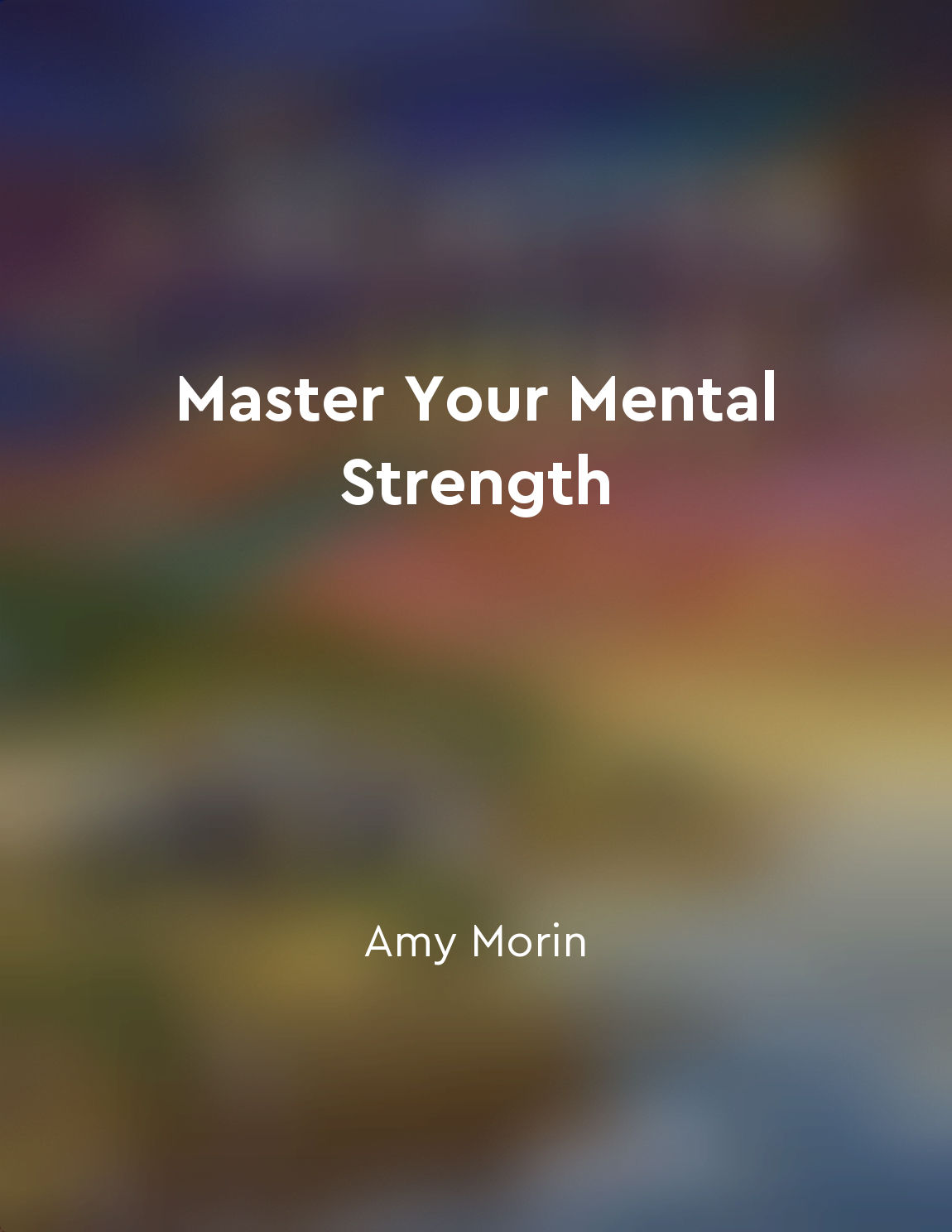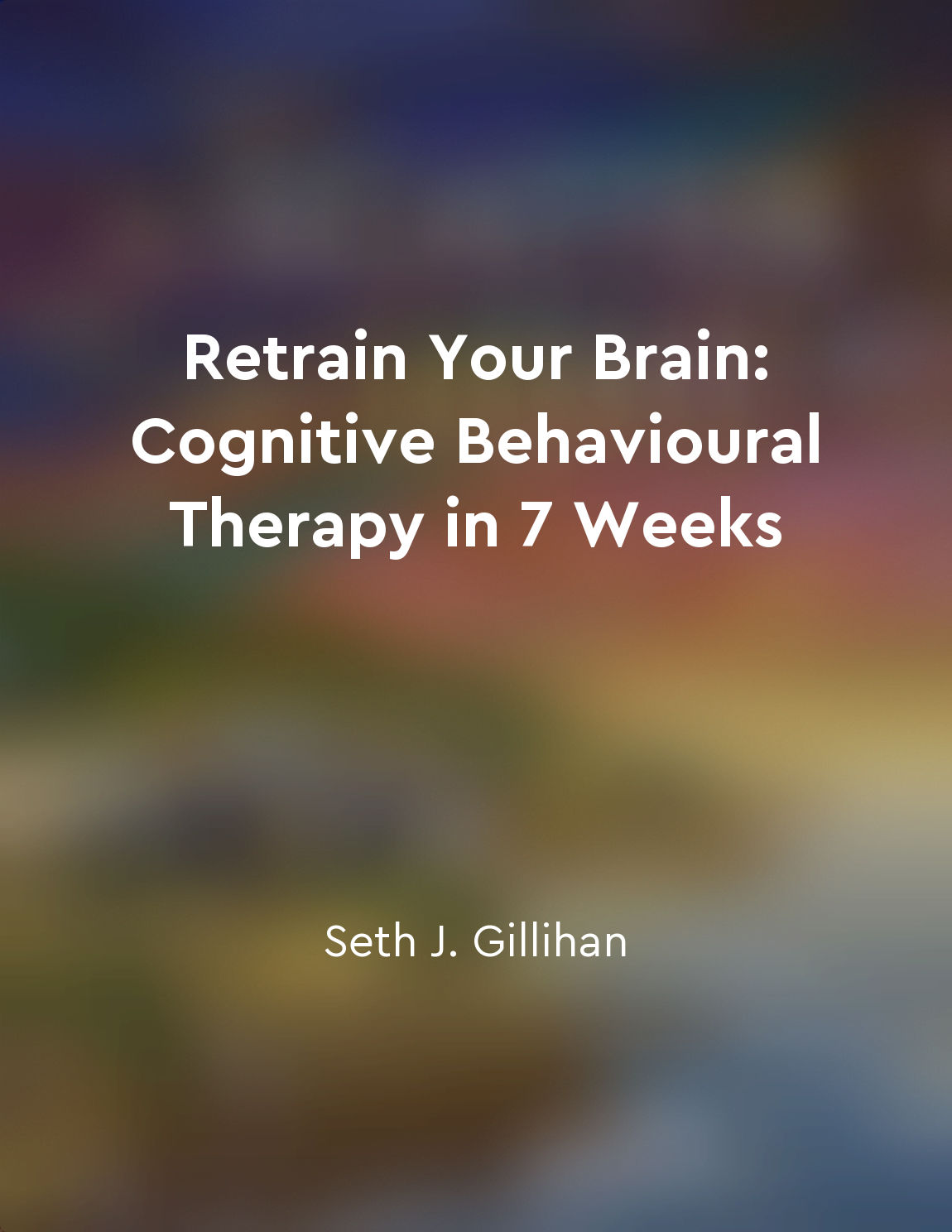Learn to regulate your emotions in healthy ways from "summary" of Running on Empty by Jonice Webb,Christine Musello
Learning to regulate your emotions in healthy ways is a crucial skill that many of us were never taught. When we grow up in homes where our emotions are dismissed, ignored, or ridiculed, we miss out on learning how to manage our feelings in a constructive manner. Instead, we may resort to unhealthy coping mechanisms such as overeating, substance abuse, or explosive outbursts. Regulating our emotions involves being able to identify what we are feeling and understand why we are feeling that way. It's about recognizing when our emotions are escalating and taking steps to calm ourselves down before we reach a point of no return. This requires self-awareness and the ability to tune into our body's physical cues that indicate we are becoming overwhelmed. One way to regulate our emotions is through mindfulness practices. By staying present in the moment and observing our thoughts and feelings without judgment, we can prevent ourselves from getting swept away by intense emotions. Mindfulness allows us to create space between our emotions and our reactions, giving us the opportunity to choose how we want to respond. Another important aspect of regulating emotions is learning healthy ways to express them. This involves communicating our feelings assertively and setting boundaries with others when necessary. By expressing our emotions in a clear and respectful manner, we can prevent them from building up inside us and causing further distress. It's also essential to develop a toolbox of coping strategies that help us regulate our emotions in challenging situations. This may include deep breathing exercises, progressive muscle relaxation, or engaging in activities that bring us joy and relaxation. By having a variety of techniques at our disposal, we can choose the most effective method for managing our emotions in any given moment.- Learning to regulate our emotions in healthy ways is a process that takes time and practice. It requires patience, self-compassion, and a willingness to learn from our mistakes. By committing to this journey of self-discovery and growth, we can cultivate a greater sense of emotional well-being and resilience in the face of life's challenges.
Similar Posts
Mindfulness can be integrated into everyday activities
Mindfulness is not just a practice reserved for sitting quietly on a cushion in a serene environment. It can be brought into ev...

Take control of your emotions for better mental health
Taking control of your emotions is crucial for your mental health. When you allow your emotions to control you, it can lead to ...

Create a peaceful environment at home
To cultivate a sense of peace within your home, start by decluttering your space. Clearing away excess items can help create a ...
Enhance creativity and innovation skills
Developing creativity and innovation skills involves a combination of mindset and practical strategies. To enhance your creativ...
Break tasks into manageable steps
When faced with a daunting task, it can be easy to feel overwhelmed and unsure of where to even begin. This is where the concep...
Social skills are important for developing emotional intelligence
Social skills are essential for the development of emotional intelligence. Interacting with others allows individuals to practi...

Build a sense of community and belonging
One important aspect of creating happiness in our lives is building a sense of community and belonging. This involves cultivati...

Set healthy boundaries to protect yourself emotionally
Setting healthy boundaries is essential for protecting yourself emotionally. When you establish boundaries, you are defining wh...

Recognize your strengths and values
As you progress through your cognitive behavioral therapy journey, it's important to take the time to reflect on your strengths...
Limit technology use
One of the key strategies we advocate for helping children become more self-driven is to limit their use of technology. This ma...

